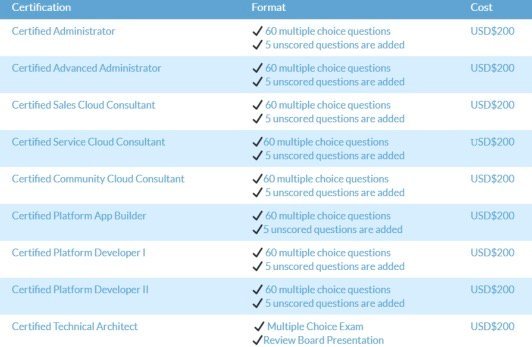Many students dream of studying in a foreign country but are stopped by a common myth: it’s too expensive. While some programs can be costly, the idea that international education is only for the very wealthy is a thing of the past. With proper research and planning, you can find many affordable options. This guide will show you how the cost of studying abroad is calculated, what the real benefits are, and how you can fund your journey.
Breaking Down the True Cost of Studying Abroad
When people think about the cost of studying abroad, they often only consider the tuition fees. However, the total expense includes several other components. You must account for your travel to the country, accommodation, food, and daily living expenses. These costs can add up and make the experience seem more expensive than it is.
According to research from the International Institute of Education, the average cost for one semester abroad is around $18,000. This means a full academic year could be about $36,000. But this is just an average, not a fixed price. The actual amount you pay can be much lower or higher depending on your choices.
It’s a mistake to look at this average number and give up on your dream. The key is to research specific programs and countries to find one that fits your budget.
How Your Choice of Country and University Impacts Price
The single biggest factor that determines your cost is where you choose to study. The price of education varies dramatically from one country to another and even between cities within the same country. Studying in a major global hub will naturally be more expensive than in a smaller college town.
Don’t be surprised to learn that studying in some countries can be cheaper than studying in your home country. Many developing nations offer excellent educational programs at a fraction of the cost. The cost of one semester in a foreign university can sometimes be less than what you would pay at home.
Furthermore, not all highly-ranked universities are expensive. Many public universities, especially in Europe, maintain cost parity and offer world-class education without a hefty price tag. This is why doing thorough research is the most important step in your planning process.
Looking Beyond Tuition: The Long-Term Value of a Foreign Degree
When evaluating the cost, it’s crucial to consider the return on your investment. A foreign education is not just an expense; it is a powerful investment in your future career. Graduates from international universities are often highly sought after by global companies and can command higher salaries. This means you can earn back your investment quickly and enjoy a better lifestyle.
Besides the financial benefits, studying abroad provides immense personal growth. You gain global exposure and a rich multi-cultural experience that you simply cannot get in your home country. This experience is invaluable if you plan to work for an international organization, as it grooms you to understand and navigate different cultures from the very beginning. The skills you learn, like independence and cross-cultural communication, are priceless.
Finding Financial Aid: Scholarships, Grants, and Fellowships
One of the best ways to make studying abroad affordable is by securing financial aid. You don’t have to pay for everything out of your own pocket. Thousands of scholarships, grants, and fellowships are available specifically for international students. These awards can significantly reduce or even completely cover your tuition fees.
Many students are unaware of the sheer volume of financial aid available. These funds are offered by:
- Foreign universities trying to attract diverse talent.
- Government programs promoting international relations.
- Private organizations and foundations supporting education.
With the right assistance, you can find and apply for scholarships that can provide a major waive off in your fees. This makes high-quality education accessible to students from all financial backgrounds. The key is to start your search early and apply to as many relevant opportunities as you can find.
Can You Work and Study Abroad?
Yes, another great way to manage your expenses is by working part-time. Most countries that welcome international students allow them to work a certain number of hours per week. This provides a steady stream of income to cover your living expenses like food, transport, and leisure activities.
Working part-time does more than just help your finances. It offers valuable international work experience, which looks great on your resume. You also learn crucial skills like time management as you balance your studies with your job. This real-world experience, combined with your academic learning, makes you a more well-rounded and capable individual.
Affordable Destinations That Offer World-Class Education
You don’t have to choose between quality and affordability. Several countries are famous for offering excellent education at a very low cost. In some cases, you might not have to pay any tuition fees at all. This means you only need to budget for your living expenses.
Countries like Germany are well-known for offering free tuition at public universities, even for international students. Other destinations also provide high-quality education without the high price tag. Proper research will help you find a top-tier college in a country that fits your budget perfectly.
Here is a quick look at some affordable regions:
| Country/Region | Key Financial Benefit | Additional Advantage |
|---|---|---|
| Germany | Tuition is often completely waived at public universities. | High-quality engineering and science programs. |
| Turkey | Education and living costs are comparatively low. | A unique blend of Eastern and Western cultures. |
| Parts of Europe | Many countries offer affordable or free education. | Easy travel to explore multiple countries. |
Frequently Asked Questions
How much does it really cost to study abroad for a year?
The average cost is around $36,000 per year, but this figure varies widely. With smart planning, choosing an affordable country, and securing scholarships, you can spend significantly less.
Can I study abroad completely for free?
Yes, it is possible in some countries like Germany, where public universities often have no tuition fees. However, you will still need to cover your living expenses, such as accommodation, food, and travel.
Is studying abroad worth the financial cost?
Absolutely. The investment often pays for itself through higher-paying job opportunities after graduation. Additionally, the global exposure and personal growth you gain are invaluable for your future career and life.
What is the easiest way to lower the cost of studying abroad?
The most effective ways are to apply for as many scholarships as possible and to choose a country known for affordable education. Working part-time while you study can also greatly help manage your day-to-day expenses.
Can I get a job while studying in a foreign country?
Most student visas allow for part-time work, typically around 20 hours per week during the semester. This is a great way to earn money for your expenses and gain international work experience.








Leave a Comment